The Agenda 👇
Building Bridges with Bruno Maçães 🎧
Can America cling to its technological lead?
Who will historians be writing about in thirty years?
Spotlight on The Family’s portfolio company Fairmint
Recruiting From Anywhere
On the most recent episode of Building Bridges, my wife Laetitia Vitaud spoke with political scientist and former Portuguese minister Bruno Maçães, whose inspiring writing about the state and future of the world makes frequent appearances here in European Straits 🌐
Bruno is one of the few thinkers who studies both the United States and China in great depth, while also having the perspective of a native European. Therefore he’s a must-listen when it comes to geopolitics and how things are likely to develop in the future!
🎧 Listen to their conversation by clicking on the player above, or at the source right here.
🇺🇸 America As a Technological Champion
Last week, I talked about a coming age where we see America as a technological laggard. As expected, that thesis generated some pushback, including from good friends (and more importantly, excellent thinkers!) like investor and author Bill Janeway.
The subsequent discussion revolved around questions of basic research and tinkering, the latter of which has had a long history on the American continent (and the former, not so much).
In the 19th century, America’s technological advances didn’t come from advanced scientific research. Rather it came from tinkerers operating far from Europe’s cutting-edge research labs. It was only following World War II and during the Cold War that basic research became a fundamental part of United States history thanks to massive government funding through the likes of DARPA and a growing network of higher education.
Now, though, the question is whether that tinkering tradition will continue, particularly in a world where America no longer stands as a shining beacon for immigrants coming from anywhere and everywhere. But there is a significant advantage that the US has today that it didn’t in the 19th century, namely its place as a financial powerhouse.
👉 I revisit the discussion in America As a Technological Champion.
🏭 SaaS Is the New Manufacturing (Round 1)
During the past five years, one category in the startup world has really stood out: Software as a Service (SaaS). These are all the companies building tools that truly fit the Entrepreneurial Age, for a simple reason: they make it easier for people to become entrepreneurs and harness the power of tech.
In some ways, it’s a bit of a problem now, because as startups move into more tangible industries and face different regulatory regimes, much of what we’ve become accustomed to with SaaS startups is being applied in industries where it doesn’t make nearly as much sense.
Still, SaaS certainly isn’t going away—indeed, it’s only destined to grow larger as we advance further into this new era. I’m even wondering whether SaaS companies would serve the same role as did manufacturing over the previous two centuries: a key value creator that, even though it employs a minority of the workforce, drives the development of both our economies and our social contracts.
👉 I start the discussion in SaaS Is the New Manufacturing (Round 1)
🧙♀️ Where Are America's Wise Men & Women?
While history is not just a question of Great Men, there are certain people occupying certain positions at certain times that end up having an outsized impact on what happens next. Walter Isaacson and Evan Thomas wrote about a group of these people who shaped American ideas and actions when it came to facing the Soviet Union following World War II in their 1986 book, The Wise Men.
Having read it earlier this year (and almost 35 years later, it still holds up!), I’m now considering the opportunities inherent in any new presidency—particularly one coming after the upheaval that has been President Trump. Specifically, I’m wondering who those key actors today might be. And given both history and current events, I do hope that they will be people with real business experience.
Why? Because business tends to be much more able than the government to establish a long-term direction. Whereas every change at the top of government can indicate a sharp turn in how a given country will act, people at the helm of a business know that the goal is improving on what came before without completely overhauling everything. Let’s face it: a business-inspired consensus could provide some much needed stability in these politically perilous times.
👉 I looked at who these people were and might soon be in Where Are America's Wise Men & Women?
📈 Why Don't Uber Drivers Own Shares? Now They Could
As someone who has worked on a daily basis with early-stage entrepreneurs for over 7 years now, I can say just how difficult it is to sometimes see where founders are really heading. Sometimes you don’t know the market at all, sometimes you learn about problems you didn’t even dream could exist… It’s a constant learning process.
And then sometimes there’s a startup that becomes very obvious, very fast. That’s the case with Fairmint, one of our portfolio companies, which is focused on providing a new way for entrepreneurs to fund their growing businesses. Along the way, they’re also solving one of the conundrums of today’s investing world: how to easily give all of a company’s stakeholders a shot at benefiting from the upside?
We know that the beating heart of companies like Uber, Airbnb, and Reddit are drivers, hosts, and commenters, respectively. Yet while those stakeholders benefit from the value they contribute to adding, there really isn’t a way for them to access the growing value of the companies themselves.
Fairmint’s new CAFE—continuous agreements for future equity—can do exactly that, opening a whole new realm of possibilities both for growing a business and sharing its benefits with anyone who is interested.
👉 I went further into why Fairmint could be a truly game-changing company in Why Don't Uber Drivers Own Shares? Now They Could (which is accessible for everyone 🤗)
Sounds interesting? Subscribe to European Straits and let me know what you think!
🏝 On Wednesday Dec. 2, my firm The Family will be hosting our next online Summit event, this time focusing on Recruiting From Anywhere. Since moving 100% of our operations online, both internal and external, we’ve been developing events to help entrepreneurs manage the changes brought on by the COVID-19 pandemic, including Summits on Fundraising, Working From Anywhere, and Customer Experience.
This time we’ll have experts giving the behind-the-scenes of what it really takes to effectively recruit when both talent and company can be located anywhere, never meeting IRL. Tickets are free, sign up here.
📖 With my fellow Directors, our daily newsletter sharing startup lessons is still counting us down towards Christmas. If you’ve missed any of them, lately we’ve covered:
Why you should always Wait until the money is in the bank account.
Signposts for When should you raise?
The perils of selling too soon and learning to eat Risk for lunch. Reward for dinner.
The need to Always be closing... on Zoom.
From 🇺🇸 A Reading List on America (November 2020):
I first heard about Bruno Maçães from the team at Stripe Press. They told me there was this guy that was writing interesting things about the West and the growing rift between the US and Europe. I immediately jumped in to learn more, and discovered that the bulk of Bruno’s work so far was in fact about China. I bought and read his first two books, The Dawn of Eurasia and Belt and Road, and eventually met him in Beijing when I visited the city in 2019 and he was spending a year there studying China from the inside.
All recent editions:
Why Don't Uber Drivers Own Shares? Now They Could—for everyone.
Where Are America's Wise Men & Women?—for subscribers only.
SaaS Is the New Manufacturing (Round 1)—for subscribers only.
America As a Technological Champion—for subscribers only.
Joe Biden's In. Understanding Capitalism. Customers Doing More.—for everyone.
America As a Technological Laggard—for subscribers only.
Why Local Businesses Can Thrive in the Entrepreneurial Age—for subscribers only.
Your Customers Are More Than Their Collective Purchasing Power—for subscribers only.
Accounting for Capitalism—for subscribers only.
The Billionaire Raj w/ James Crabtree. A Long Week in the USA. Jack Ma and the CCP. Protectionism Back in Style.—for everyone.
European Straits is a 5-email-a-week product, and all essays are subscriber-only (with rare exceptions). Join us!
From Munich, Germany 🇩🇪
Nicolas




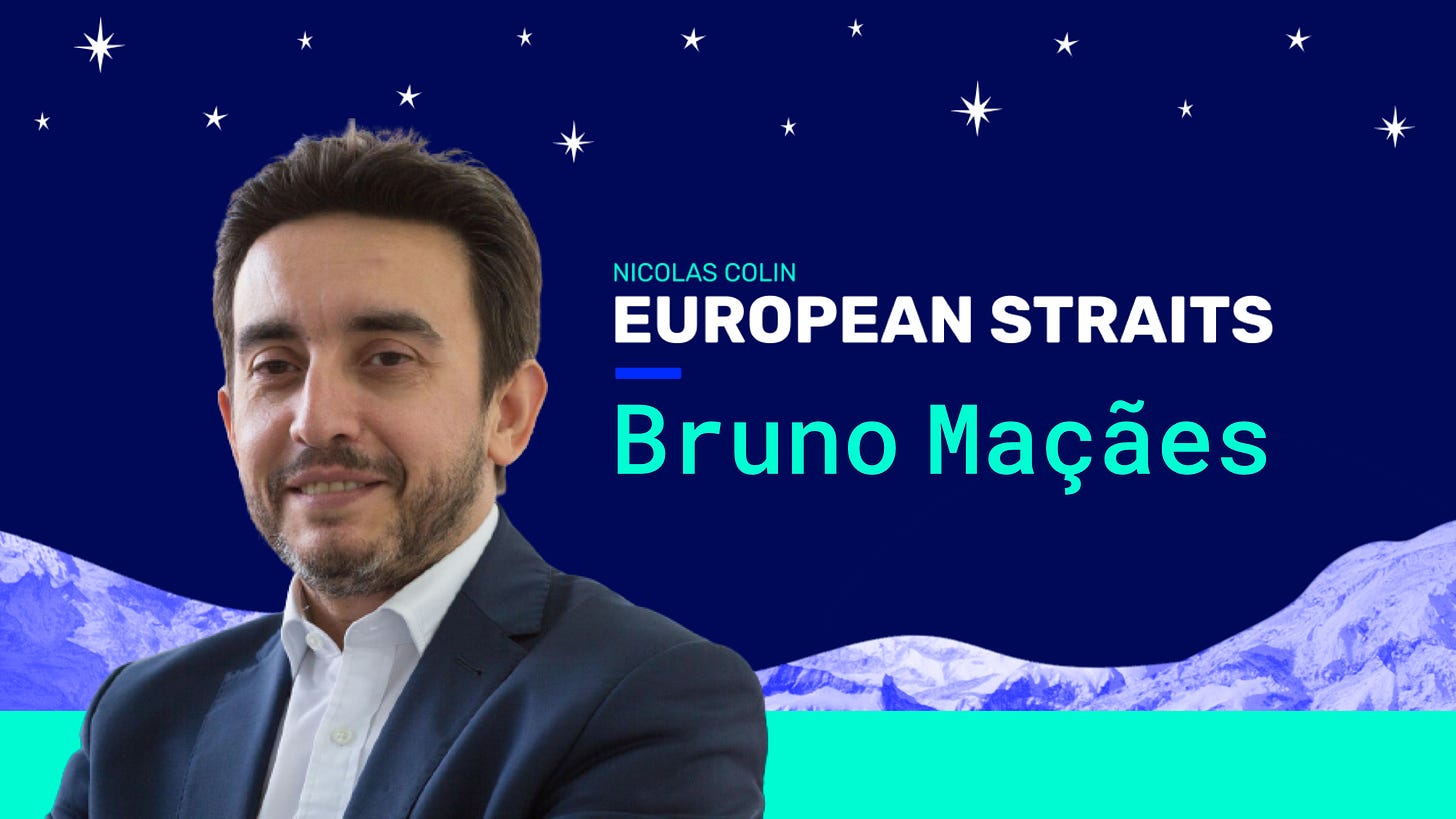







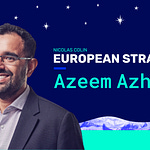
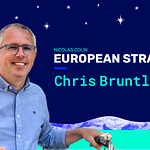
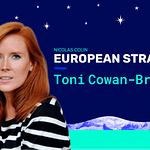
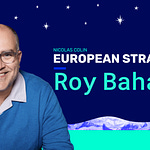
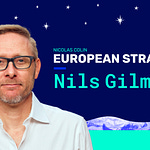

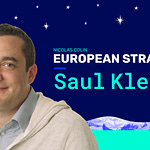
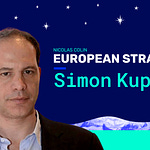
Around the World w/ Bruno Maçães. America’s Strength. SaaS. The New Wise Men. Democratizing Upside.